 |
||
|
||
| ||
Report from the plant in Luxembourg and information on the companyTDK, as you know, is a powerful Japanese company; TDK stands for Tokyo Denki Kagaku which means Tokyo Electrochemical Corporation.
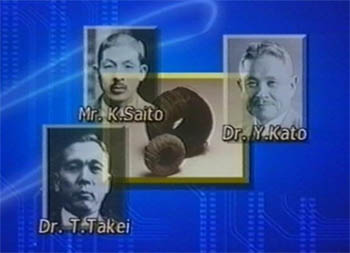 The history of the company dates back to 1935 when three Japanese scientists invented ferrite and started producing this very important material for many computer components and data storage devices. Further the company was one of the leaders in developing new important technologies. Thus, in 1966 we got the first compact cassette from TDK, and in 1991 they released the first CD-R TDK disc.
 TDK engineers never stopped improving their technologies, and in 1975 they offered an advanced audio cassette (SA Cassette), in 1978 they released Super Anilyn VHS, and in 1987 we got an S-VHS video cassette.
 TDK produces a wide range of products: from magneto-optical discs and diskettes to photo paper, from batteries to caddies.
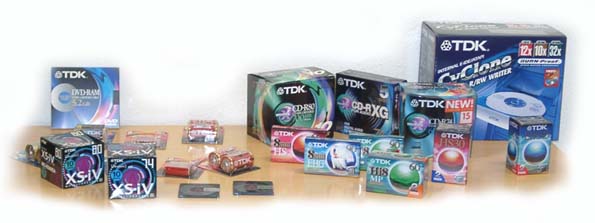 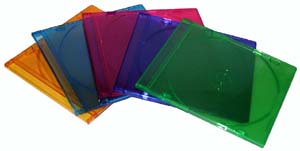 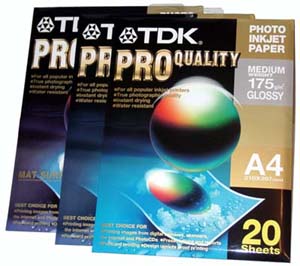 It is interesting that this company produces 70% of magnetic heads for hard drives. A plant located in Luxembourg was set in operation in 1991 and supports the whole production cycle: from raw stuff to finished products. Video cassettes and CD-R discs are produced exactly here.
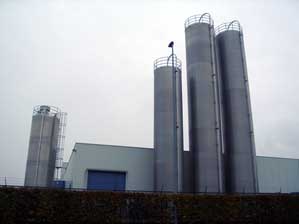 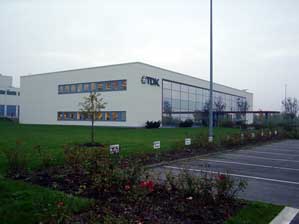 Both inside and outside the plant the environment is ecologically clean. The corporate culture is at a very high level here. In workshops where it is very important to keep cleanness workers wear special suits, and a great deal of sensors look after the microclimate.
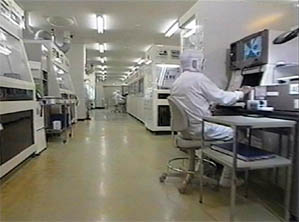 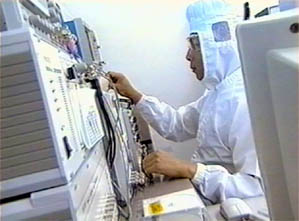 Visitors are prohibited from entering some rooms, and you can watch engineers to work only through special glass.
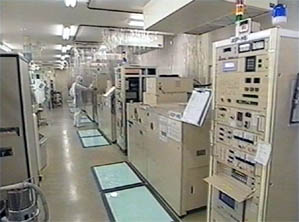 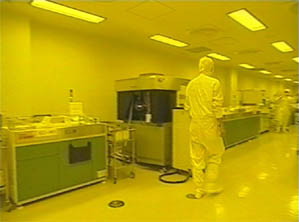 Production never stops, and in case of emergency conditions a rotating beacon goes on right above the respective pipeline part. Plenty of various machines produce monotonous noise. Special robots which transport different stuff on the territory of the plant play music which helps to alleviate this row. Besides, these robots, which move along certain lines, have special sensors not to knock anybody down. TDK has a lot of research centers located all throughout the world.
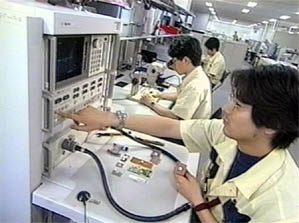  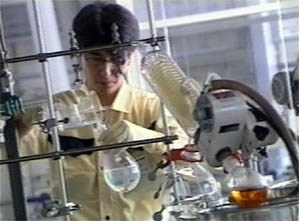 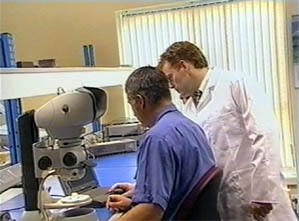 As a result, the company expands its field of activity. For example, not everyone knows that TDK deals in production of network cards, modems and GSM accessories for cell phones.
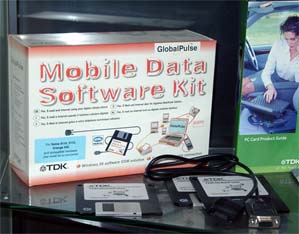 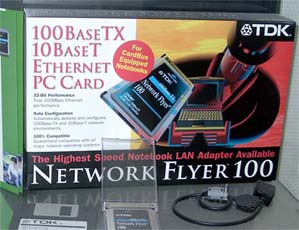 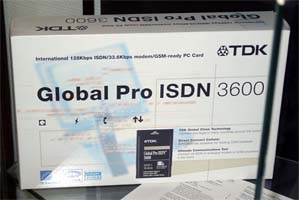  Here are communication devices from TDK
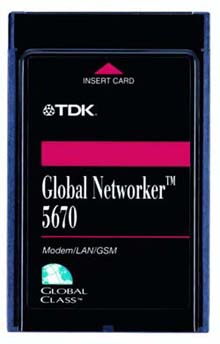 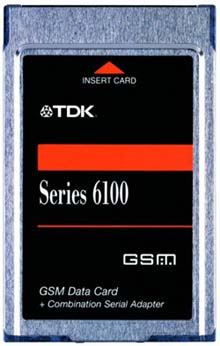 Modern nonvolatile memory types are paid a great attention to by TDK. Any maybe very soon its CompactFlash and SmartMedia cards will become widely available.
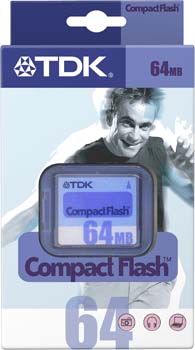 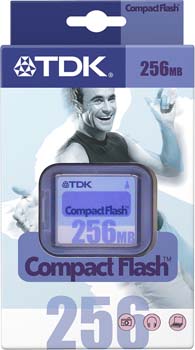 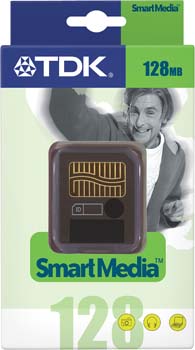 One more sphere TDK works in is acoustic systems which look rather unusual.
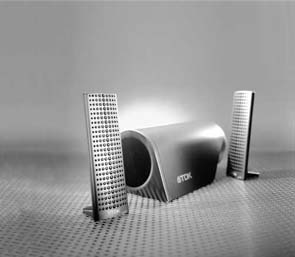 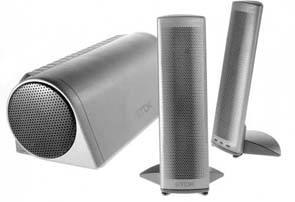 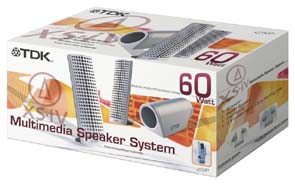 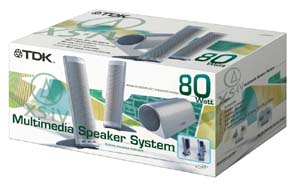 The new speakers from TDK incorporate the NXT - Surface Sound technology which reportedly provides deeper and cleaner sound than ordinary speakers. Each system is equipped with a 25W subwoofer. The XS-iV S60 model has two 5W speakers and the XS-iV S80 one offers 7.5W ones. The old fields of activity such as production of CD-RW drives are also maintained. Their first CD recorders appeared in 2000. Since that time the line has expanded much. Soon the company will introduce some new devices. First of all, they will improve a 24x CyClone: the drive will get UltraDMA 33 support and Windows XP compatibility. Besides, we will soon see a 24x FireWire model at about 299.
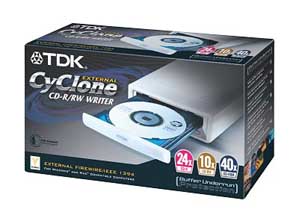 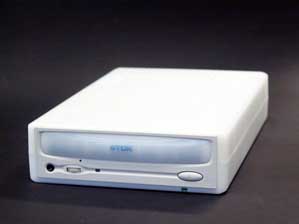 The TDK engineers decided to refuse 2x and 4x write speeds in the last modifications of the 24x CyClone because it is very difficult to maintain high-quality recording in the whole range of speeds, and according to the Tokyo company, with high-quality Hi-Speed CD-R discs one can achieve much better results at 24x than at 2x or 4x. It is still unknown whether external CyClone will support a USB 2.0 interface. Nevertheless, the company doesn't disregard this high-speed interface. CyClones will be mainly produced in Japan. They will also solve the problem of firmware incompatibility for VeloCD and CyClone models. As it was expected, the VorteX line will have just one 12/10/32 CD-RW drive. It's too complicated for any company to support several modifications of drives for meant different price niches. A new generation of CD-RW drives from TDK is just around the corner. Now the recording level is lifted to 32x. And 32x CyClones will start shipping early in January.
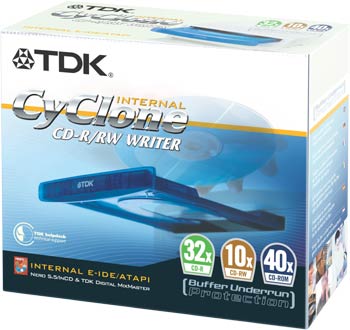 The drive has a 40x data extraction speed and supports UltraDMA 33. Besides, it features a technology of optimization of record speed and laser power. It must work flawlessly under the Windows XP. The drive will cost around ˆ249. An external version of this drive will appear in the first half of the next year. Undoubtedly high record speeds require appropriate media. To achieve the optimal result the engineers recommend to use the latest 32x CD-R ReflexUltra.
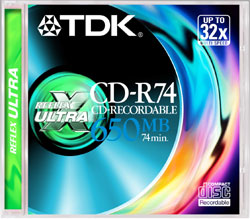 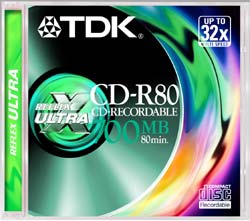 The most interesting device for me is an external CD-RW drive with 24/10/32 speeds.
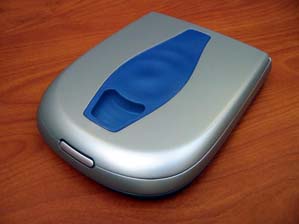 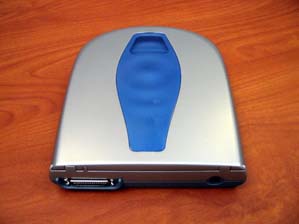 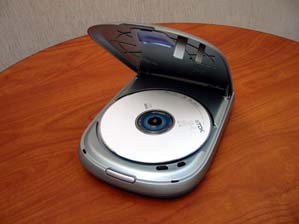 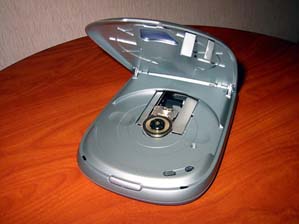 At present this drive is equipped with a FireWire interface but it can also be connected to USB 2.0 with a Dougle adapter. Its estimated cost is 399. Among the most interesting and promising technologies today is ML (MutliLevel) from TDK. As you know, it is a new standard of recordable discs which allows reaching up to 2 GBytes without changing much "stuffing" of a recording device. The current principle of data recognition provides for two states of signal - 0 and 1 (pits and lands on a disc). TDK suggests that recorders have only one chip which can recognize up to 8 signal states at the expense of special coloring agent which is very close in structure with cyanine pigment used in usual CD-R media. It makes for 8 different gradations of a reflection factor in recording which correspond to certain laser powers and durations of radiation.
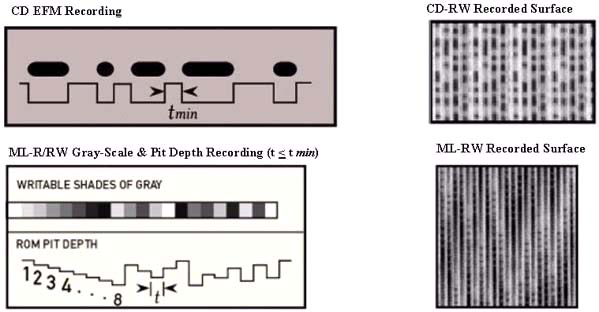 The principle of operation of the technology is demonstrated in a simple form on the following figure
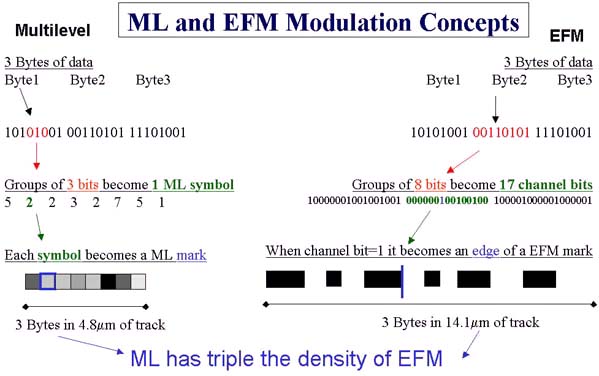 You can see how 3 bytes of data are located on a disc with a standard file system and on a disc recorded with the help of the MultiLevel technology. First ML drives will record ML-R media at the speed equivalent to 36x for a standard CD-RW drive. The CLV recording method is supported. It is impossible to spoil a ML disc because a packet write mode is used. ML-RW can be rewritten at 30x. MultiLevel drives also can write and rewrite CD and CD-RW media at 16x and 10x respectively, and read CDs at 40x. This technology can be used also in DVD devices lifting up a size of data stored on a DVD disc up to several tens of GB. Here is the roadmap for the ML technology:
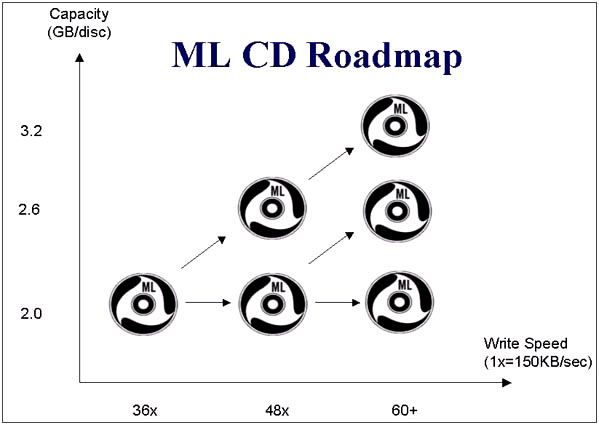 First ML recorders will enter the market in March 2002; by this time Nero and InCD versions with support of the new drives must appear as well.
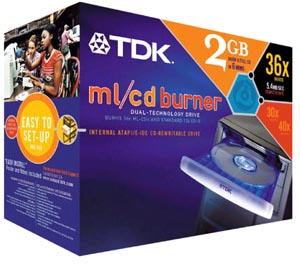 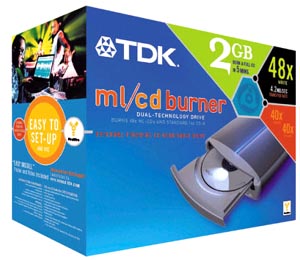 Apart from new modern technologies I also tried to find out the prospects of further development of optical data storage system technologies. Jean-Paul Eekhout and Max Weber kindly agreed to answer my questions. On my question about Ritek discs with the TDK's logo Mr. Eekhout said that the company guarantees high quality of their discs regardless of where they are produced. If the quality of CD-R discs from Ritek worsens they will immediately turn down their service. Mr. Weber told us that 24x discs of the d-view, Metallic and i-Storage must come out very soon. Besides, 8cm CD-R discs will appear at the beginning of 2002, while the market of compact CD-RW media is not so attractive. Besides, they noticed that their Audio CD-R share keeps on growing on, and probably by 2003 it will reach 120 million of discs a year. Currently they are developing the Audio CD-R Pro series which will have several special layers to improve a reflection factor and quality of data recorded. Resistance to various physical damages is also paid great attention to.
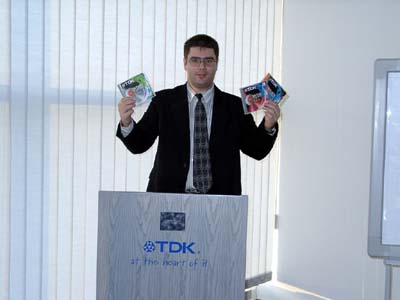 Here Mr. Yushin demonstrates the latest TDK discs TDK has been dealing in production of DVD-RW and DVD-R discs for a long time already. And production of DVD+RW media is also likely to start very soon.
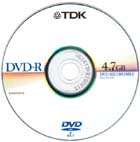 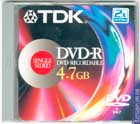 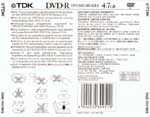 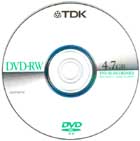 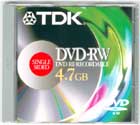 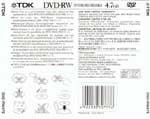 Luxembourg has no any special shops or computer markets, and all the products, including those from TDK, are available in any supermarket.
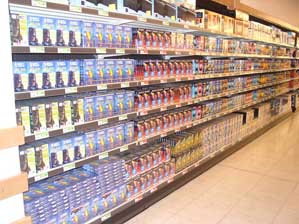 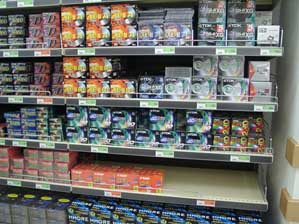 Undoubtedly, the most products on the shelves are from TDK. Below you can compare prices of one of the most cheap hypermarket of Luxembourg called Cactus.
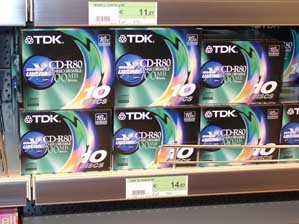 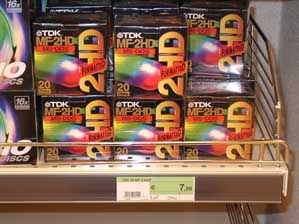 Nevertheless, you can't say TDK dominates in the center of Europe. All products displayed for sale are in retail packages. Here you can see a pyramid built of boxes with Plextor 24/10/40A recorders.
 To all appearance, in 2002 this Japanese giant is going to release a lot of new models; just take a look at their roadmap for 2002.
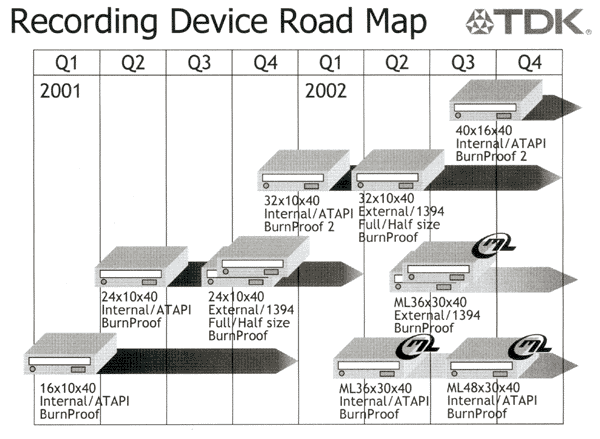 Write a comment below. No registration needed!
|
Platform · Video · Multimedia · Mobile · Other || About us & Privacy policy · Twitter · Facebook Copyright © Byrds Research & Publishing, Ltd., 1997–2011. All rights reserved. |